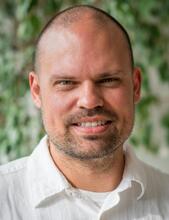
Dr. Christen Fleming will be providing a 2-hour workshop to MPYC researchers and collaborators on Continuous-Time Movement Modeling, in addition to his seminar talk on October 28, 2021.
BIO: Christen Fleming is a physicist, mathematician, and statistician by training, and is currently an associate research scientist at the University of Maryland College Park (UMDCP) Department of Biology and a research associate at the Smithsonian Conservation Biology Institute (SCBI) Conservation Ecology Center. Dr. Fleming develops complementary mathematical models, statistical analyses, and software packages for difficult to work with ecological data. Currently, his focus is on addressing conservation related questions with animal tracking data, but he also works on evolutionary models for phylogenetic data, among other topics. Dr. Fleming earned a Bachelor of Science in physics, mathematics and statistics from the University of South Alabama, and obtained his doctorate in physics from UMCDP. He has since held post-doctoral positions in biology at UMDCP and SCBI, working with Drs. Justin M. Calabrese, Bill F. Fagan, and Peter Leimbgruber.
ABSTRACT: Animal tracking data often come with substantial autocorrelation and location error that render classical analyses invalid and cause differential biases across studies, sites, taxa, and individuals. Continuous-time methods offer a solution to these challenges, but can be conceptually challenging and are often misapplied. This workshop will provide beginners with an introduction to important concepts, as well as hands-on experience using the R package ‘ctmm’, to apply advanced statistical methods to tracking data. Participants will learn how to fit continuous-time movement models to their tracking data, select the most appropriate movement model for their analysis, interpret model parameters, perform home-range analysis via autocorrelated kernel density estimation (AKDE), perform path reconstruction via occurrence distribution estimation, and distinguish between the different types of utilization distributions.
We are open for applications to attend the workshop. Please note spaces are limited, and we may require a justification for your attendance. To inquire about attendance, email us at ybgc@yale.edu.